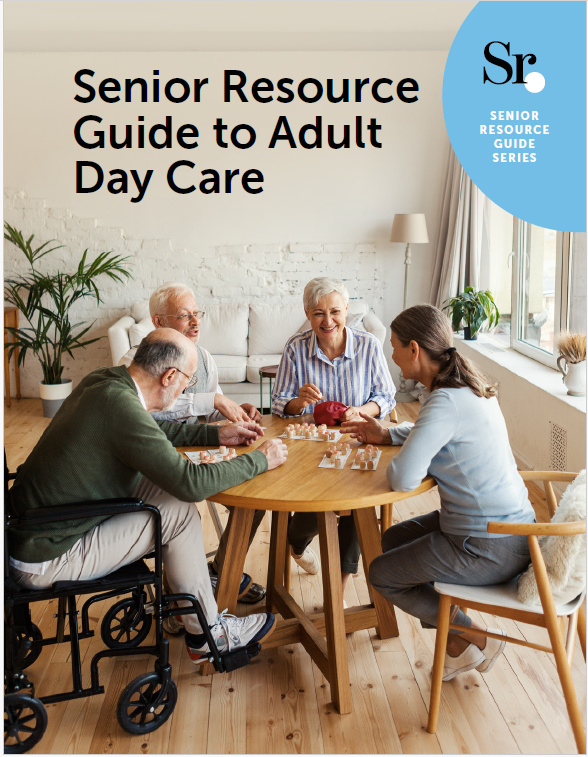10 Must-Know Facts About Hospice Care

Hospice care. A word that conjures up unpleasant and sad feelings. While the word carries some negative connotations, there’s still a lot of dignity in hospice care. Hospice focuses on providing support and comfort to individuals facing a life-limiting illness, particularly those nearing the end of their lives. The primary goal of hospice care is to enhance the quality of life for patients and their families by addressing physical, emotional, spiritual, and social needs. A team of healthcare professionals, including doctors, nurses, social workers, counselors, and volunteers, work together to provide comprehensive care. If you or a loved one are facing hospice care, you might have questions. Fortunately, we have answers! Here are 10 things to know about hospice.
1. Hospice is sometimes known as end-of-life care.

Hospice care is specialized care for individuals who are nearing the end of their life. It focuses on providing comfort, pain management, and emotional support. Hospice care is designed for situations where curative treatments are no longer effective or when the patient decides to discontinue such treatments. Thus, the focus shifts to ensuring that the patient’s remaining time is as comfortable as possible.
2. Hospice can happen anywhere.

Hospice can take place in a variety of settings. The emphasis is on creating a comfortable and familiar environment. Many individuals receive hospice care in the comfort of their own homes. This allows patients to remain in a familiar and supportive environment, surrounded by their loved ones. Some communities have dedicated hospice facilities or inpatient hospice units where individuals can receive specialized care. Meanwhile, patients in long-term care facilities, such as skilled nursing facilities, may receive hospice services while continuing to reside in these facilities.
3. Medicare covers hospice.

Hospice care is covered by Medicare, and many private insurance plans also provide coverage. This includes medications, equipment, and services related to the terminal illness. To qualify for Medicare hospice benefits, an individual must meet the following criteria:
- Must be enrolled in Medicare Part A.
- Both your hospice doctor and your regular doctor must certify that you have a prognosis of six months or less.
- You must agree to palliative care instead of curative treatment.
- You must sign a statement agreeing to hospice care instead of other Medicare-covered treatments for your terminal illness.
4. Hospice is a choice.

Hospice is a voluntary decision someone makes when facing a terminal illness and they, along with their healthcare team, determine that curative treatments are no longer effective or desired. Choosing hospice involves a shift in focus from pursuing aggressive medical interventions to providing comfort, pain management, and holistic support for the patient and their loved ones. This choice empowers individuals to approach the end of life on their terms, with dignity, and in a manner that aligns with their preferences and values. Individuals and their families should have open and honest discussions with healthcare providers to understand the options available, discuss goals of care, and make informed decisions about hospice when appropriate.
5. Families are involved in hospice care.

Family involvement is a crucial aspect of hospice care, and it plays a significant role in supporting both the patient and their loved ones during the end-of-life period. Open communication between the hospice team, patient, and family is essential. Regular meetings and discussions keep everyone informed about the patient’s condition, goals of care, and any changes in the care plan. Additionally, respite care services may be provided to give family caregivers a break, allowing them to rest and recharge while ensuring the patient’s needs are still met.
6. Hospice provides emotional and spiritual support.

Hospice places a strong emphasis on providing emotional and spiritual support. Many hospice programs have chaplains or spiritual counselors who can offer guidance, prayer, and spiritual support based on the individual’s beliefs and preferences. Additionally, hospice care often includes counseling services for both the patient and family members. This can help individuals cope with the emotional challenges of facing the end of their lives. Hospice professionals are trained to respect and accommodate a person’s spiritual beliefs and practices.
7. Hospice involves a team approach.

Hospice care involves a team approach with healthcare professionals working together to provide comprehensive and holistic care for the patient and their family. This team-based approach addresses various aspects of the patient’s well-being. Typically, key members of the team include physicians, nurses, social workers, bereavement counselors, therapists, and chaplains/spiritual counselors.
8. Hospice provides patients with individualized care plans.

The hospice team conducts a thorough assessment of the patient’s medical condition, symptoms, and overall well-being. Individualized plans address the specific symptoms experienced by the patient. This may include pain management, symptom control, and strategies to enhance comfort. By focusing on individualized care plans, hospice aims to enhance the quality of life for each patient and provide support that is tailored to their unique circumstances. This person-centered approach is a key principle of hospice.
9. Patients still take medication while receiving hospice care.

Some people may think entering hospice means going off all medication, but that’s not true. The use of medication in hospice care helps to manage symptoms, provide pain relief, and enhance the patient’s comfort and quality of life. In fact, pain management is a significant aspect of hospice care. Medications, such as opioids and other pain relievers, may be used to alleviate pain and improve the patient’s overall comfort.
10. Hospice doesn’t have a time limit.

Even though hospice care is offered to patients with a life expectancy of six months or less, it doesn’t have a fixed time limit. The length of time a person receives hospice care can vary widely. Some individuals may receive hospice support for a few weeks, while others may receive care for several months. The flexibility of hospice allows for ongoing assessment and adjustment of the care plan based on the changing needs of the patient.
Factors to Consider When Selecting a Hospice Care Program

Each year, millions of seniors make the transition to hospice, benefiting from the support and services provided. In 2020 alone, an estimated 1.49 million Medicare beneficiaries received hospice services. With over 5,500 hospice programs available across the US, families have a wide array of options when seeking quality end-of-life support. Here are some factors to consider while navigating the process of selecting the ideal hospice provider:
- Quality of Care: Ensure the hospice provider offers personalized care plans tailored to the individual’s needs.
- Accreditation: Look for accreditation from reputable organizations like The Joint Commission or the Community Health Accreditation Partner (CHAP).
- Services Provided: Check if the hospice offers a range of services such as pain management, emotional support, and spiritual care.
- Availability of Staff: Assess the availability of nurses, doctors, social workers, and counselors to provide comprehensive care.
- Location: Is hospice care provided at home or in a facility? And, what’s more important – where do you want it provided?
Questions to Ask Potential Hospice Providers:
- What services are included in the care plan?
- How often will the hospice care team visit the patient?
- What is the process for managing pain and other symptoms?
- How does the hospice support family members and caregivers?
- Can the care plan be adjusted based on the patient’s changing needs?
Transitioning to Hospice Care: What to Expect
- Initial Assessment: A hospice team member will conduct an assessment to develop a care plan.
- Care Team Introduction: Patients will meet the care team, including nurses, doctors, counselors, and volunteers.
- 24/7 Availability: Hospice providers offer round-the-clock support for emergencies and questions.
- Focus on Comfort: The focus shifts to providing comfort, dignity, and quality of life for the patient.
- Bereavement Support: Hospices offer support for families during and after the patient’s passing.
The Bottom Line On Hospice Care

While hospice may evoke somber sentiments, it embodies a profound sense of dignity and compassion. Through a focus on comfort and support, hospice endeavors to enhance the quality of life for those nearing the end of their journey.
By understanding these facets of hospice care and engaging in informed discussions, seniors and retirees can navigate this sensitive phase with clarity, dignity, and the assurance of compassionate support every step of the way.
For more help and info, check out these great senior resources:
World Health Organization – Palliative Care
Popular Articles About Hospice Care
Originally published April 30, 2024








